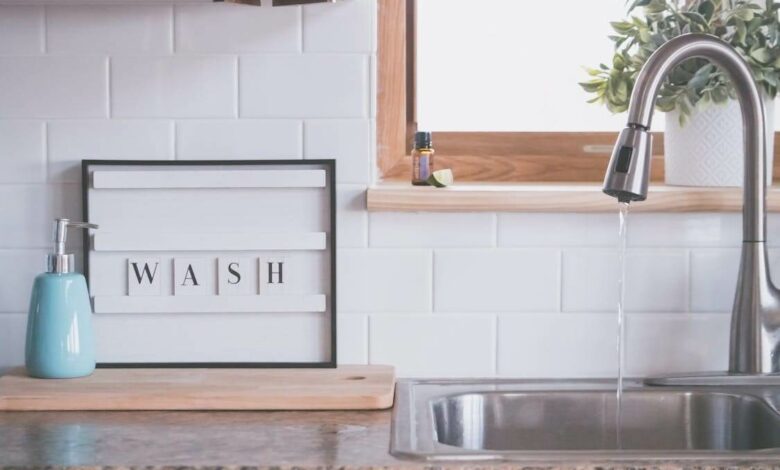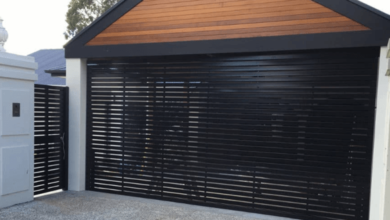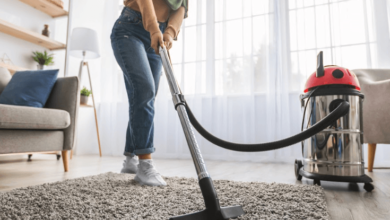Plumbing Maintenance – 6 Tips to Avoid Major Issues

Regular plumbing maintenance is essential for keeping your home’s plumbing system running smoothly and avoiding significant issues. A well-maintained plumbing system ensures that water flows efficiently, fixtures function correctly, and potential problems are identified and addressed before they escalate. By being proactive with maintenance, you can save money on repairs, extend the lifespan of your plumbing components, and prevent inconvenient and potentially damaging plumbing emergencies.
In this article, we will share six practical tips to help you maintain your plumbing system and avoid major issues. From professional installation of critical components to regular inspections and preventative measures, these tips will guide you in keeping your plumbing in top condition.
Check for Leaks and Repair Promptly
Leaks are a common plumbing issue that can lead to significant damage if not addressed promptly. Even a small leak can waste a substantial amount of water and cause water damage, mold growth, and increased utility bills. Common signs of leaks include water stains on walls or ceilings, moldy or musty odors, and damp spots on floors or carpets. Regularly checking for these signs can help you catch leaks early and prevent them from worsening.
It’s essential to repair leaks as soon as they are detected. For minor leaks, such as a dripping faucet, you might be able to handle the repair yourself. However, for more significant leaks or those that are difficult to locate, it’s best to call a professional plumber. Professionals can use specialized tools to detect hidden leaks and ensure that repairs are done correctly. Promptly addressing leaks not only prevents water damage but also helps maintain the integrity of your plumbing system and saves you money on water bills.
Get a Tankless Water Heater
Tankless water heaters offer numerous benefits, such as energy efficiency and providing an endless supply of hot water. These units are more compact than traditional water heaters and can reduce energy costs by only heating water on demand. However, to enjoy these benefits fully, it’s crucial to ensure that it’s installed correctly. Improper installation can lead to a host of issues, including poor performance, frequent breakdowns, and even safety hazards.
Hiring experts for the installation is essential to ensure the unit operates efficiently and safely. Professionals have the experience and knowledge to handle the installation process, including making the necessary electrical and plumbing connections and ensuring proper venting. By relying on a professional, you can avoid common pitfalls associated with DIY installations, such as gas leaks or electrical problems, and ensure that your water heater provides reliable service for years to come.
Regularly Inspect and Clean Drains
Keeping your drains clear of debris is vital for preventing clogs and blockages, which can lead to more serious plumbing issues. Everyday use of sinks, showers, and tubs can cause hair, soap scum, grease, and other debris to accumulate in your drains. Over time, this buildup can restrict water flow and eventually cause complete blockages, resulting in slow drainage, unpleasant odors, and potential backups.
Hence, to maintain clear drains, it’s important to adopt routine maintenance habits. Use drain screens to catch hair and larger debris, and avoid pouring grease or food scraps down the sink. Regularly flushing your drains with hot water can also help break down minor buildups. Additionally, scheduling periodic professional drain cleaning can ensure your drains remain free-flowing and reduce the risk of major clogs. Professionals have the tools and expertise to thoroughly clean your drains and remove any stubborn blockages that household methods might miss.
Maintain Water Pressure
Maintaining proper water pressure is crucial for the efficiency and longevity of your plumbing system. Low water pressure can be a common and annoying issue, making everyday activities like showering, washing dishes, and doing laundry more difficult. It can also indicate underlying problems within your plumbing system, such as sediment buildup in the pipes, hidden leaks, or issues with the main water supply line. High water pressure, on the other hand, can cause undue stress on your plumbing system, leading to leaks and burst pipes.
Read also 6 Major Plumbing Disasters and How to Avoid Them
To ensure your water pressure remains at an optimal level, regularly monitor it using a pressure gauge. This simple device can help you detect any significant changes in water pressure. If you notice a drop in pressure, check for clogged aerators in your faucets and clean them if necessary. Additionally, schedule regular inspections with a professional plumber to identify and address any issues that could affect water pressure. By maintaining proper water pressure, you can enhance the performance and lifespan of your plumbing system.
Insulate Pipes
Insulating your pipes is an important preventive measure, especially in colder climates where freezing temperatures can cause pipes to burst. Burst pipes can lead to extensive water damage and expensive repairs. Pipe insulation helps to maintain the temperature of the water inside the pipes, reducing the risk of freezing and the associated damage. Insulating hot water pipes also helps to retain heat, improving energy efficiency and reducing energy costs.
When insulating pipes, use foam pipe insulation sleeves or self-sealing foam tape. Focus on exposed pipes in unheated areas such as basements, crawl spaces, and attics. Pay special attention to pipes near exterior walls. Properly insulating your pipes not only prevents freezing but also minimizes condensation on cold water pipes, which can reduce the risk of corrosion.
Schedule Annual Plumbing Inspections
Regular professional plumbing inspections are essential for identifying and addressing potential issues before they become major problems. During an inspection, a plumber will thoroughly examine your plumbing system, checking for signs of wear and tear, leaks, blockages, and other issues. This proactive approach helps to maintain the health of your plumbing system and can save you money in the long run by preventing costly repairs and water damage.
An annual inspection typically includes checking all fixtures, faucets, and pipes for leaks, inspecting the water heater for signs of corrosion or malfunction, and evaluating the overall condition of your plumbing system. By scheduling annual inspections, you can catch small issues early, ensuring they are resolved before they escalate. Regular inspections also provide peace of mind, knowing that your plumbing system is in good working order and less likely to fail unexpectedly.
Conclusion
Maintaining your plumbing system through regular upkeep and preventive measures can help you avoid major issues and ensure its long-term efficiency. By ensuring professional installation of your water heater, regularly inspecting and cleaning drains, promptly repairing leaks, maintaining proper water pressure, insulating pipes, and scheduling annual plumbing inspections, you can prevent costly repairs and enjoy a reliable plumbing system. Proactive maintenance not only enhances the performance and lifespan of your plumbing system but also provides peace of mind and a comfortable living environment.





